The second time Dhu'l-Qarnayn (as) sets off, he goes east. Applying the verse to a map, he could have gone to Korea, China, or Manchuria (northern China). The verse mentions "a people to whom We had not given any shelter from the Sun." The Arabic word for shelter is "sitr" (to cover, to hide). It is derived from the root "satara." Thus, in the context of this verse, it means "a cover in the form of cloths or a building."
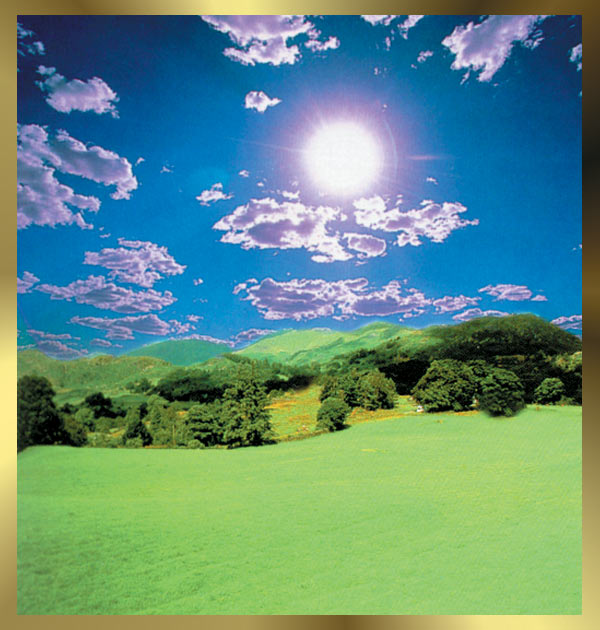 … he reached the rising of the Sun… (Surat al-Kahf, 90) |
Therefore, it can be assumed that these people did not live in houses but rather in the open, wide land. They had no forms of shelter or devices like umbrellas. They may have been nomadic, or a people who worked at night and spent the days in underground shelters. Or, they might have been a people who had no clothes or civilization. Omer Nasuhi Bilmen interprets the verse in this way:
"Dhu'l-Qarnayn, in this journey, came to the land of the rising sun (where the sun is born). For these people there was no protection from the rays of the sun like a piece of cloth, a building, or a mountain. These people were either entering the sea or an underground cavity when the sun rose and came out to do their work when the sun set."4
Surat al-Kahf 91 speaks of Dhu'l-Qarnayn's (as) knowledge of the essence of things. The Arabic word for "knowledge comprising the essence" is "khubr," which means "to know thoroughly, to be fully acquainted with the truth."
This knowledge is a special knowledge that Allah gives only to His chosen few. As Surat al-Kahf 68 indicates above, Khidhr (as) also was graced with this special knowledge.
The third time Dhu'l-Qarnayn sets off on his journey, he reaches an area between the East and the West. This could be an area in the Himalayas. Bediuzzaman Said Nursi indicates these areas too, and reminds us that "… The Great Wall of China covers a distance of several days' journeying and was built to halt the incursions against the oppressed peoples of India and China of the savage tribes… These tribes several times threw the world of humanity into chaos, and pouring out from behind the Himalayas wrought destruction from East to West. A long wall was built between two mountains close to the Himalayan mountains which for a long time prevented the frequent assaults of those savage peoples…"5 As Bediuzzaman says, the two mountains could be mountain chains.
The verse also indicates that the people he encountered were scarcely able to understand what was said to them. Perhaps the expression "scarcely able to understand speech" indicates that they spoke a very different or unusual language.
Dhu'l-Qarnayn (as), however, is able to communicate with them, either through being able to speak their language because of his special knowledge or because a member of his party knows that particular language.This verse could be indicating that he had a special group of people with him who were trained in such matters.
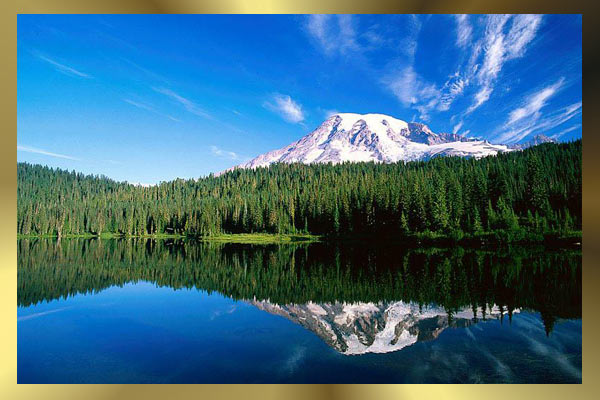 … when he had made it level between the two high mountainsides, he said: "Bowl!"… (Surat al-Kahf, 96) |
We also can understand from the verses that wherever Dhu'l-Qarnayn (as) goes, he comes across people who are destitute and miserable, needy and weak. Those in the East cannot even protect themselves from the Sun. The people between the mountains are ignorant and primitive in terms of culture and technology, and also cannot defend themselves from external enemies. Thus, they face the threat of anarchy. The most important reason for them to seek Dhu'l-Qarnayn's (as) help could be their existing poverty, ignorance, and state of chaos. These are important factors for our understanding of the situation at that time.
Through the words "Yajuj" and "Majuj," thought to have been introduced into Arabic from another language, we learn of a people who are causing corruption in the land. Interpretations by scholars indicate that these people are one or more nations who were oppressing, abusing, and ill-treating the people of that area.
Due to this corruption, the people in trouble seek Dhu'l-Qarnayn's (as) help and offer to pay him a tax in return. From this, we understand that he does not represent a single person; rather, he rules a nation and commands an army, just like Prophet Sulayman (as).
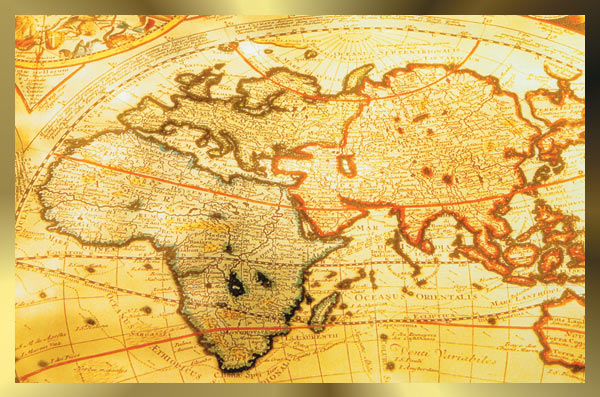 We can deduce from this narrative that Dhu'l-Qarnayn (as) was a Muslim ruler who controlled many lands. |
From the previous verses, we understand that he had a team of linguists with him. However, this verse also indicates that he must have had teams of construction experts and civil engineers as well. From the people's request, we can deduce that Dhu'l-Qarnayn (as) is interested in, and knowledgeable about, construction and civil engineering. He might even have been renowned for his expertise in these fields and helping other nations when they ask for it. All of these factors demonstrate the size and power of his nation.
Dhu'l-Qarnayn (as) is also known as someone who prevents corruption and wickedness. For this reason, nations that are in trouble, experiencing difficulties or internal chaos, or facing external pressure ask for his help. It could be that he brings law and order to the region, that neighboring nations ask for his help because they trust his military power and his ability to end corruption, and because he heads a very powerful nation. The fact that one nation requests the help of another, and even offers to pay a fee in return, shows that it cannot resolve the troubling situation on its own and that the nation from which help is sought can. In other words, the helping nation is powerful and well established.
That Dhu'l-Qarnayn (as) is well respected and effective in the East and the West could indicate that he rules a nation possessing extensive power. Therefore, he is a leader, aware of his responsibility to bring peace, justice, and security not only to his own nation, but also to every part of the region. With this verse, Allah indicates that it is every Muslim's responsibility to work for justice, peace, and security. Every country should take an interest, within its means, in the problems facing the world and help those nations that are in financial and other need.
The narrative of Dhu'l-Qarnayn (as) indicates that in the End Times, just as it was during his own time, the values of Islam will rule the world.
Allah reveals this good news to the believers, as follows:
Allah has promised those of you who believe and do right actions that He will make them successors in the land, just as He made those before them successors, and will firmly establish for them their religion with which He is pleased, and give them, in place of their fear, security. "They worship Me, not associating anything with Me." Any who do not believe after that, such people are deviators. (Surat an-Nur, 55)
This verse again indicates the solidity of Dhu'l-Qarnayn's (as) power. His nation is not so weak as to collapse easily. On the contrary, it is exceedingly strong, assures its own people as well as other needy nations, and does not cause anxiety in people with its methods of rule and practices. It appears to be invulnerable, with Allah's will, for this verse indicates that no internal or external opposition, pressure, or force could ever affect it, and that his rule is so solid that no conflict, outbreak of dissent, or revolt could rock it.
Dhu'l-Qarnayn (as) does not accept any recompense in return for his help. The Qur'an gives other examples about this character of the Prophets. For instance, Prophet Sulayman (as) rejected the gifts sent to him:
"I [the queen of Saba] will send them a gift, and then wait and see what the messengers bring back." When it reached Sulayman, he said: "Would you give me wealth when what Allah has given me is better than what He has given you? No, rather it is you who delight in your gift." (Surat an-Naml, 35-36)
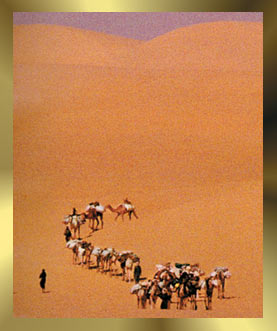 Balqis was the queen of Saba, a powerful nation at that time. The Qur'an informs us that Sulayman (as) refused to accept her gifts. The picture on the right portrays the convoy carrying these gifts to Sulayman (as). |
There could be several reasons why Sulayman (as) and Dhu'l-Qarnayn (as) rejected offers of material returns. Perhaps accepting such a reward would have had a negative result, such as causing those who gave it to lose some of their respect, obedience, and submission to the one to whom they had given it. This is a psychological frame of mind in people. The verse indicates that in these cases, it is better to avoid such a situation by not accepting any reward or fee. No doubt, such an attitude will increase the love and allegiance of those who have been helped. Besides, Dhu'l-Qarnayn (as), just like Sulayman (as), is the leader of a rich nation that does not need to expect a return for its assistance.
Nevertheless, Dhu'l-Qarnayn (as) requests the people's support in terms of labor. Thus, he seems to have preferred to give jobs and a degree of responsibility to the local population. In this way, he teaches them art and science and helps them to advance in culture and technology. He also makes use of unemployed people, saves his own nation's wealth, and makes his new employees useful by giving them roles in their nation's defense. No doubt, such a relationship based on justice, respect, and fairness will strengthen mutual trust and win the people's support.
 Such a practice has many positive aspects, among them the people's education and the increase in skilled labor, an escape from laziness and stagnation, and the chance to experience the high spirits of achieving success by their own efforts. This practice also increases the nation's self-confidence, for those who work to improve their own nation will hardly cause trouble or be inclined to revolt and rebel. As a result, the people will easily be ruled during this period of assistance. Besides, people work better and more efficiently with their own people and enjoy serving their nation. Of course, in things done for Allah's good pleasure, this is unimportant. However, we cannot expect everybody to be diligent in this matter or that they all seek Allah's good pleasure. With this in mind, everyone's rights must be guaranteed, regardless of the level or lack of devotion to Allah. Here we see how clever Dhu'l-Qarnayn's policy is.
Such a practice has many positive aspects, among them the people's education and the increase in skilled labor, an escape from laziness and stagnation, and the chance to experience the high spirits of achieving success by their own efforts. This practice also increases the nation's self-confidence, for those who work to improve their own nation will hardly cause trouble or be inclined to revolt and rebel. As a result, the people will easily be ruled during this period of assistance. Besides, people work better and more efficiently with their own people and enjoy serving their nation. Of course, in things done for Allah's good pleasure, this is unimportant. However, we cannot expect everybody to be diligent in this matter or that they all seek Allah's good pleasure. With this in mind, everyone's rights must be guaranteed, regardless of the level or lack of devotion to Allah. Here we see how clever Dhu'l-Qarnayn's policy is.
According to this verse, Dhu'l-Qarnayn (as) builds a solid barrier, which prevents crossing and is an example of solid architecture and high technology. It is crucially important that every building, especially bridges, be constructed solidly so that they can withstand such natural disasters as earthquakes, floods, and rain, as well as military attacks.
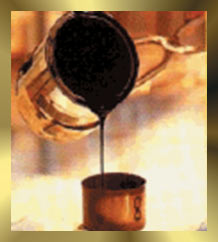 Tar Tar |
Based upon this verse, this barrier might have been a concrete structure. This type of construction is used today in almost all types of buildings and huge dams.
The verse also states that Dhu'l-Qarnayn (as) used iron and tar—or molten copper according to some interpreters—in this structure. Iron, the strongest building material, is an essential component of bridges and dams, for it increases the structure's rigidity. In its absence, the slightest damage or tremor would cause it to collapse.
It is possible that Dhu'l-Qarnayn (as) used blocks of iron and mortar to build a huge barrier. It is possible that he may have joined the blocks of iron end to end by pouring mortar over them and built a strong concrete structure. (Allah knows best).
The Arabic word qitr translated as "molten copper" also means tar.6 Tar, which is used to protect iron from moisture and seawater, is a protective coating obtained by the destructive distillation of pine wood or coal. Dhu'l-Qarnayn (as) could have poured tar over this structure to prevent the iron from being subjected to oxidation and rust. Similar insulation materials are usually found in modern concrete structures.
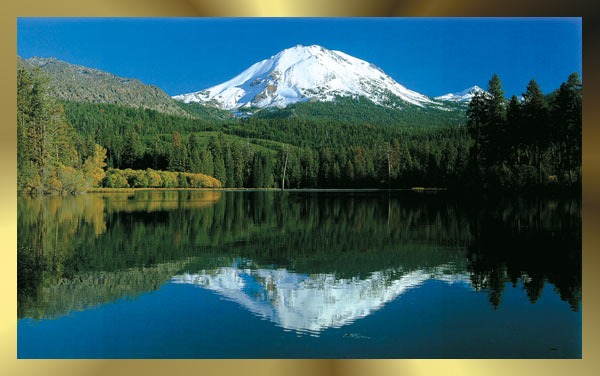
Dhu'l-Qarnayn could have combined the tar-coated iron with a mortar mixed of gravel, chalk, sand, and water in order to increase its strength. Normally, mortar mixed with sand and chalk can be perforated quite easily. However, it becomes indestructible when supported by iron. Such a structure would be a preventive measure, and no force applied to it could destroy or damage it, let alone break through it, under the conditions existing at that time, unless Allah willed it.
| |
The first verse reveals that this barrier is impregnable. This suggests that it was a quite high structure, and the fact that it could not be breached proves that it is structurally sound. All of these facts could be indicating that it was built by using a concrete-iron construction method similar to what we see all around us today.
According to verse 98, the first thing that Dhu'l-Qarnayn (as) remembers after completing this project is Allah's attributes of mercy and grace. Knowing that no one could build such a barrier unless Allah wills it, he remembers immediately that our Lord was the real builder and seeks to prevent the people from considering it to be their own achievement.
Surat al-Kahf 98 also reveals that this wall will remain until the Day of Judgment. The word "promise" stands for that day, as will be seen in the subsequent verse. In other words, it will be protected until then.
The wall's exact location may or may not be found within time, for this knowledge rests with Allah. The important thing is that it will not be destroyed until the Day of Judgment, for on that day everything will be destroyed. Many verses reveal that mountains will move and nothing will remain on Earth's surface. Some of these are given below:
On the Day We make the mountains move and you see Earth laid bare… (Surat al-Kahf, 47)
When Earth is flattened out, disgorges what is inside it, and empties out, harkening to its Lord as it is bound to do! (Surat al-Inshiqaq, 3-5)
They will ask you about the mountains. Say: "My Lord will scatter them as dust. He will leave them as a barren, level plain upon which you will see no dip or gradient." (Surah Ta Ha, 105-107)
| Another Possibility About The Dhu'l-Qarnayn Narrative Another possibility is that this narrative conveys events that will happen in the future. In Allah's presence, all time is one. Future, past, and present are experienced all at once. In some verses, the events of the Day of Judgment, Hell and Paradise are related as if they have already taken place. The following verses are an example of this: The Trumpet is blown, and all who are in the heavens and all who are on Earth swoon away, save him whom Allah wills. Then it is blown a second time, and behold them standing waiting! And Earth shone with the light of her Lord, the Book is set up, the Prophets and the witnesses are brought, and it is judged between them with truth. They are not wronged. (Surat az-Zumar: 68-69) The events related in this verse are told as if they have already taken place, even though to us they will happen in the future. Therefore it is possible that the Dhu'l-Qarnayn (as) narrative is from the future, related to us in the past tense. Surat al-Kahf 84 says: that "[We] granted him a way to everything." This might indicate that Dhu'l-Qarnayn (as) will rule the world in the future. In today's world, a powerful leader or nation must have both communication technology and conventional power. As the leader cannot inspect all of them personally, we can assume that he will stay in a central capital city and control the other areas through satellites and other means of communication. As verse 95 proclaims: He said: "The power my Lord has granted me is better than that," Dhu'l-Qarnayn's (as) power is probably well-established. If we look at the narrative from this perspective, we realize that each verse could be conveying a different message. For example, Dhu'l-Qarnayn (as) went first to the West, then to the East, and then back again. These verses might be implying that he communicates with different areas by changing channels broadcasting from satellites. The verses speak constantly of "finding." Dhu'l-Qarnayn (as) "found" a people by the "spring" and a people in the East who did not understand. These acts of "finding" happen by searching, and thus could be a finding based upon looking up satellite channels. The verses say that the people of the East had no shelter from the sun. If we consider this information in the light of communication technology, there are two possible messages here. Dhu'l-Qarnayn (as) could be watching or gathering intelligence via satellites about these areas (Allah knows best). Or they could be implying infrared technology, which is used in many different areas today. For example, infrared cameras are used in medicine, criminal pathology, meteorology, criminology, intelligence, industry, and other fields. Such cameras also can observe the human body in great detail. If Dhu'l-Qarnayn (as) is addressing a nation, he could be doing so via satellite and TV broadcasts. This would enable him to learn of the people's needs and complaints, regardless of where they lived, and then rule the areas under his control accordingly. The Yajuj and Majuj corruption could be a classic act of terror or anarchy, or even be committed by means of broadcasting. For example, they could be disrupting other broadcasts in order to broadcast their corrupted ideas. Dhu'l-Qarnayn (as) could have prevented this broadcast and thus the corruption For instance, he could have used the copper and iron mentioned in the verse to create an electromagnetic field and disrupt the radio and TV broadcasts. Transformers, which are made by winding copper wire around an iron core, are one of the sources of electromagnetic fields. A powerful electromagnetic field can disrupt radio and TV broadcasts.
Another possibility is that a huge communal satellite dish is implied. The reason for it being so big could have been to overcome Yajuj and Majuj's global disruptive system. The surfaces of these dishes are usually made of the cheaper and lighter aluminum, which is not the ideal material for performance. Copper is a much better conductor, and might have been preferred for this reason. However, covering such a huge dish with copper sheets is not rational. On the other hand, copper-plating the dish with molten copper would give it the smoothest surface and deliver the highest possible performance.
The wall or barrier created by competing broadcasts or by creating a magnetic field could be termed an "invisible barrier." Some scholars read the word saddayn in verse 93 as suddayn, and sadd in the following verse as sudd. In the first case, the meaning would be a "visible barrier"; in the second, it means an "invisible barrier" (Allah knows best). "They were, therefore, unable to climb over it, nor were they able to make a breach in it," as stated in verse 97, might be referring to this, because Yajuj and Majuj attempt to overcome or breach the transmitter's broadcast. Significantly, the current expression used for pirate stations that broadcast by interfering with another broadcast is "breaching transmission." Considering the expression "scarcely able to understand speech" in this light might mean that this satellite broadcast is sometimes not understood by some people. When the broadcast is disrupted, the people cannot understand; but when the normal broadcast is restored, they begin to understand (Allah knows best). The expression "a muddy spring" (verse 86) is also interesting, because seeing the sunset on the TV screen is just like the sun setting in a spring. The colors on the screen change as the sun sets in the distance over the sea, and this appears grayer on the screen. Thus, for someone viewing this, it will appear as if setting in a muddy spring. The `aynin hami'ah expression, made up of `ayn (spring) and hami'ah (muddy) could be implying this unclear view. Also, his contact with the East and the West could indicate that he is in touch with the various parts of the globe. While the sun rises over one part, it sets on the other. | ||||
The Qur'an reveals that the entire universe, including humanity, animals, plants, stars—in short, everything that has been created—will die. In the Qur'an, this day is described as "the Day mankind will stand before the Lord of all the worlds" (Surat al-Mutaffifin, 6).
The Hour is a day of terror. Those who did not believe before will, for the first time, feel Allah's sheer power and might … and very strongly at that. For the unbelievers, this is a day of great suffering, terror, remorse, pain, and surprise. Everyone witnessing this day will experience an indescribable fear that is far worse than all of the fears experienced in this world.
The Hour begins with the sounding of the trumpet, which is the sign for the beginning of Earth's and the universe's end. There is no way back anymore, for this is the sound of the end of everyone's worldly life and the beginning of the real life, the life of the Hereafter. This is the sound that starts the unbelievers' fear, terror, misery, and panic, which will be everlasting. The Qur'an reveals what kind of day this will be for the unbelievers, as follows:
For when the Trumpet is blown, that Day will be a difficult day, not easy for the unbelivers. (Surat al-Muddaththir, 8-10)
Surat al-Kahf states that these people will surge against one another like great waves on the Day of Judgment. They will be as if drunk on fear, and will go back and forth like surging waves. Their fear will cause them to lose all control and awareness of what they do or where they go.
The greater the people's insensitivity and ignorance of this day, the greater will be their terror on that day. This sense of fear and terror will remain with them from the moment they die and last throughout eternity. The Qur'an reveals that this fear will cause children's hair to turn gray, as follows:
How will you safeguard yourselves, if you do not believe, against a Day that will turn children grey, by which Heaven will be split apart? His promise will be fulfilled. (Surat al-Muzammil, 17-18)
Those who thought that Allah was unaware of their actions will realize that they were His helpless servants and that He had given them time until the Day of Judgment. He did so because this is Allah's promise, as revealed in: "… He is merely deferring them to a Day on which their sight will be transfixed" (Surah Ibrahim, 42). Other verses also describe this day:
The Crashing Blow! What is the Crashing Blow? What will convey to you what the Crashing Blow is? It is the Day when mankind will be like scattered moths, and the mountains like tufts of colored wool. (Surat al-Qari`a, 1-5)
The verses of Surat al-Hajj reveal that people will be like those who have lost their minds:
Mankind, heed your Lord! The quaking of the Hour is a terrible thing. On the day that they see it, every nursing woman will be oblivious of the baby at her breast, every pregnant woman will abort the contents of her womb, and you will think that people are drunk when they are not drunk; it is just that the punishment of Allah is so severe. (Surat al-Hajj, 1-2)
Some verses which relate the helplessness of the people on that day are the following:
And the Moon is eclipsed, and the Sun and Moon are fused together. On that Day, man will say: "Where can I run?" No indeed! There will be no safe place. That Day, the only resting place will be your Lord. (Surat al-Qiyama, 8-12)